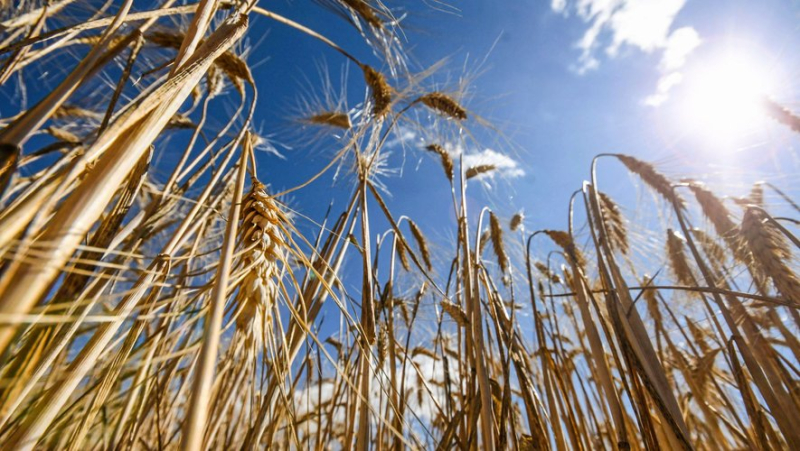The wheat harvest is expected to be “catastrophic” this year in France: production would be the lowest in 41 years

The yield of the soft wheat harvest was estimated at 5.93 tonnes per hectare (T/ha) for 2024 (illustration). Midi Libre – MiKAEL ANISSET
Production would be the lowest in 41 years, due to repeated rains on autumn sowings. FNSEA wants state aid as prices remain higher than in 2020.
This year's soft wheat harvest in France, the European Union's (EU) largest producer, is expected to fall to 25.17 million tonnes, its lowest level in 41 years, as heavy rains have impacted both the area under cultivation and yields.
The yield of the soft wheat harvest was estimated at 5.93 tonnes per hectare (T/ha) for 2024, which represents a fall of 18.7% compared to the five-year average, the cabinet said in a press release. Argus analysis. If this yield is higher than that of 2016, the year in which the harvest reached its lowest level of the century, production was lower this year than eight years ago, notably with the drop in surface areas.
"There was a shortage of 900,000 hectares compared to 2016, hence an even worse harvest" , declares Gautier Le Molgat, director of Argus Media France, in a press release. "We have to go back to 1983 and its 24.5 million tonnes to find such a poor harvest in France."
Argus' forecasts are nearly 10 million tonnes lower than last year's production and would leave France with a much smaller export surplus.
Rain on sowing and limited sunshine
However, bumper harvests in other major exporting countries such as Russia have pushed wheat prices lower. In addition to repeated heavy rains since autumn planting, wheat crops have suffered from cool temperatures and limited sunlight during crucial growing stages, as well as diseases and weeds. The harvest is in its final stages, but storms last week have further delayed the harvest and heightened concerns about the damage caused.
"We need traditional state support measures", including "on taxes on undeveloped land, with exemptions on aid for the payment of social and tax charges", said Arnaud Rousseau, president of the FNSEA, on Wednesday morning on France Info, who called on the resigning minister to Agriculture Marc Fesneau. Arnaud Rousseau also hopes that the "crisis envelopes" that are open at the European Union level "are quickly activated".
The main agricultural union is also "in full negotiation with the banks to be able to benefit from cash flow conditions", such as "subsidized loans with reduced rates that will allow operating cycles to continue", he adds. For the president of the FNSEA, “the challenge, right now, is to be able to sow in the fall“.
Cereal prices, which had doubled between 2020 and 2022, at the time of the Ukrainian crisis, contributing significantly to the resumption of inflation, will nevertheless remain above those of 2020 in 2024.




